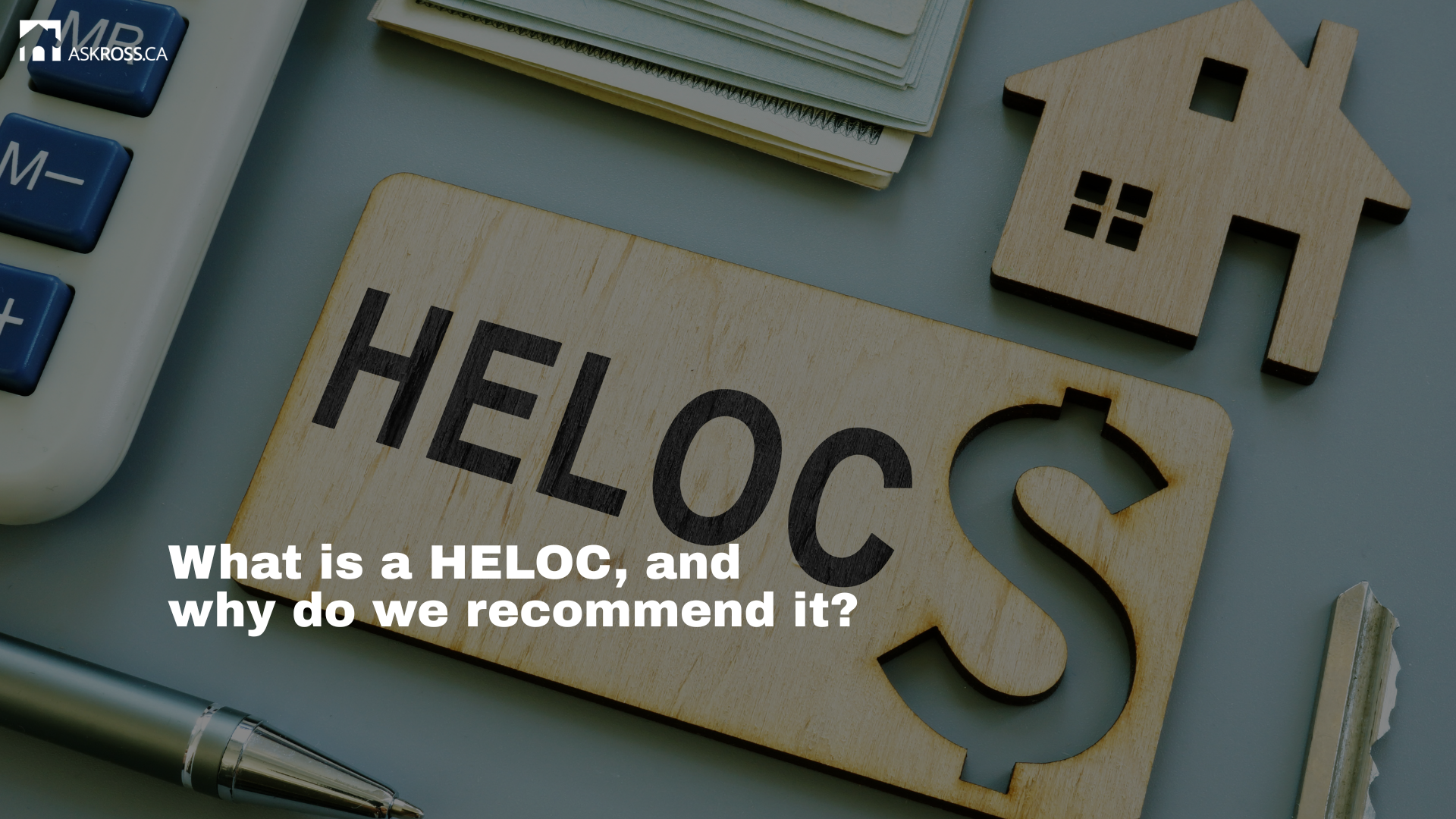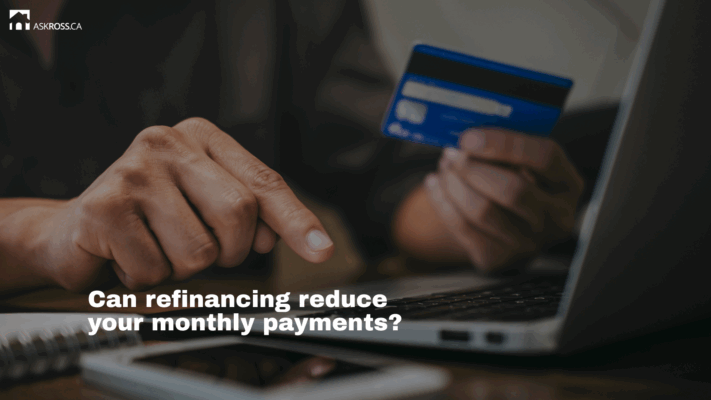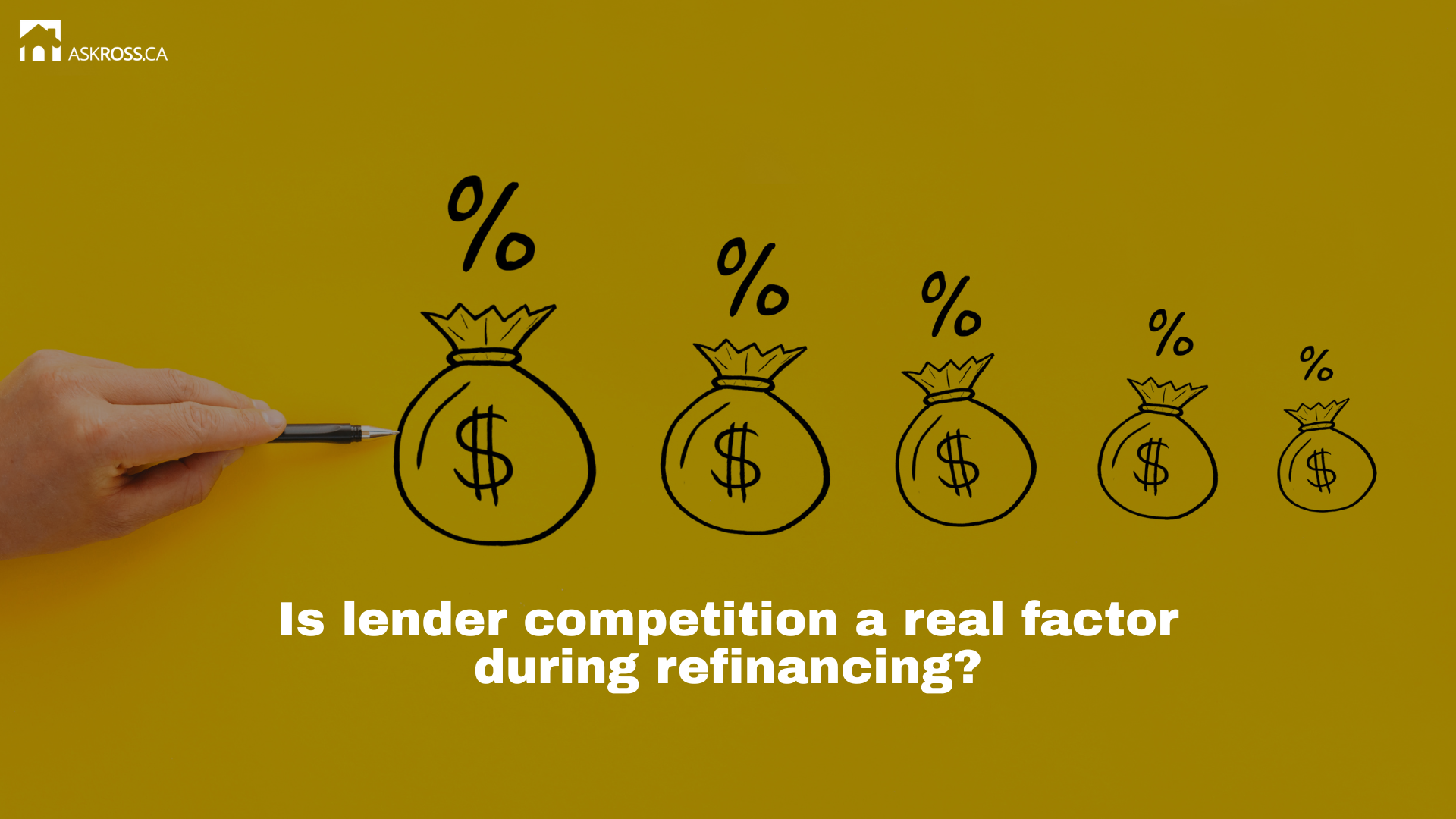
Published: May 8th, 2025 • Last Updated: May 8th, 2025
Author: Ross Taylor on AskRoss.ca
Refinance or Renew Your Mortgage in Canada: A Complete Guide to Saving Money & Maximizing Your Home’s Equity
Your mortgage term is ending, and now you’ve got a choice to make: do you sign that renewal offer your lender slid across the table, or should you seriously consider refinancing?
For many Canadians, renewal feels like the path of least resistance. It’s quick, painless, and doesn’t involve any major decisions. But that convenience can come at a real cost.
The truth is, blindly renewing your mortgage could mean missing out on a chance to significantly improve your financial situation.
Refinancing isn’t just about shaving a few points off your interest rate. Done right, it can help you unlock equity, reduce your payments, restructure your debt, and give you more control over your financial future.
Let’s dive into the scenarios where refinancing might just be the smarter and more lucrative move.
Jump to a specific section in this article ↓↓
- What’s the difference between renewing and refinancing a mortgage?
- How does refinancing help you avoid costly penalties?
- How does refinancing unlock home equity?
- What is a HELOC, and why do we recommend it?
- Can refinancing reduce your monthly payments?
- Is lender competition a real factor during refinancing?
- What should you know about changing mortgage rules?

What’s the difference between renewing and refinancing a mortgage?
When your mortgage term ends, you’ve got two main paths: renew with your current lender or refinance, either with them or a new one.
Renewing is typically straightforward. Your lender sends you a renewal offer, and you sign it. Easy. But most of the time, these offers don’t reflect the most competitive rates or the full range of options available in the market.
Refinancing, on the other hand, is a proactive decision. It gives you a chance to requalify and restructure your mortgage from scratch. Yes, it takes more effort, but the potential gains are well worth it.
Why refinancing can be a game-changer
- Access your home equity to fund big goals or reduce higher-interest debts.
- Restructure your mortgage to fit your current lifestyle, income, or financial goals.
- Take advantage of lender competition and possibly secure a much better rate.
- You can add flexible features like a Home Equity Line of Credit (HELOC) or a re-advanceable mortgage.
↑↑ Back to the list at the top ↑↑

How does refinancing help you avoid costly penalties?
Here’s one major advantage that often gets overlooked: if you refinance right at the time of renewal, you avoid prepayment penalties.
That’s right, by waiting until your current term ends, you can make major changes to your mortgage with no financial slap on the wrist. This strategy can be a lifesaver, especially for homeowners with large mortgage balances.
Here are the benefits of refinancing at the right time
- You won’t be charged to break your existing mortgage.
- You avoid costly prepayment charges associated with breaking your mortgage early.
- You get a clean slate to renegotiate terms that better suit your current needs.
- You can explore other lenders freely, often unlocking better rates or features.
- Abundant savings potential that can amount to thousands of dollars, depending on current rates and loan balances.
By strategically opting to refinance your mortgage during renewal, you can position yourself for long-term financial stability.
↑↑ Back to the list at the top ↑↑

How does refinancing unlock home equity?
Canadian homeowners have built a ton of equity in their homes, and many don’t even realize it. Refinancing allows you to tap into that equity without selling your home.
Think of it like this: your home’s value has likely gone up, and your mortgage balance has gone down. That difference is your equity, and it’s money you can put to work.
Whether you have your eye on starting a business, targeting debt relief, or funding education, refinancing could be your ticket to unlocking substantial funds.
Smart ways Canadians use home equity
- Fund major expenses like education, new business ventures, or emergencies.
- Invest in home renovations to improve comfort and boost your property’s value.
- Consolidate high-interest debts like credit cards and personal loans.
- Support family members, such as helping adult kids with gifts for a down payment.
- Set up a HELOC for future flexibility—you only pay interest on what you use.
↑↑ Back to the list at the top ↑↑

What is a HELOC, and why do we recommend it?
Equity liquidity opens doors to numerous possibilities. Sometimes you don’t actually need the equity today, but you want the option to tap into the equity in the future. In that case, we can set you up with a Home Equity Line of Credit (HELOC)
This will open the door to significant $$$ down the road if ever needed, but in the meantime, you do NOT pay any interest on your limit if you are not using the HELOC.
One option I often recommend is a re-advanceable HELOC. With this setup, every time you make a regular mortgage payment, your HELOC limit increases by the amount of principal you’ve paid, giving you flexible, ongoing access to your home equity.
Over time, you build access to a growing credit line, with no interest costs until you use it, making it a powerful tool for managing future financial needs.
↑↑ Back to the list at the top ↑↑

Can refinancing reduce your monthly payments?
Absolutely. If your monthly budget feels tight, refinancing to extend your amortization could be a smart move. It’s not the best fit for everyone, but for many households, it offers much-needed breathing room.
How amortization extension works
Say you have 15 years left on your current mortgage. When you refinance, you might choose to stretch that back out to 25 or even 30 years. You’re not borrowing more. You’re just spreading the payments out over a more extended period, which lowers your monthly cost.
Why this might make sense for you
- Lower monthly payments free up cash for other priorities.
- Improved cash flow can reduce financial stress.
- Strategic flexibility lets you divert funds toward investing, education, or family needs.
Yes, you’ll pay more in interest over the long haul, but for some, the immediate monthly relief is well worth it.
↑↑ Back to the list at the top ↑↑

Is lender competition a real factor during refinancing?
You bet it is. Banks advertise posted rates that can seem disproportionately high, but here’s something crucial Canadians often don’t know: These rates are highly negotiable, especially during renewal and refinancing scenarios.
One of the biggest myths out there is that you’re stuck with whatever rate your bank offers. The truth is, there’s a whole world of lenders competing for your business, and that’s where we come in.
Our team will shop around on your behalf. We’ll compare rates and features across dozens of lenders to make sure you’re not leaving money on the table.
How you can take advantage of lenders competing for your business
- Brokers can negotiate significantly lower than the advertised bank rates—in many cases, nearly 2% lower.
- Take advantage of switch incentives offered by new lenders eager for your business.
- Canadians, on average, save thousands of dollars switching lenders at the time of renewal.
- Lock in customized mortgage options that better match your goals.
Our guarantee: Here’s something I always promise– if your current lender’s offer is the best one out there, I’ll tell you.
But if we can do better—and often we can—I’ll lay out exactly what the rate may be, what your payments will be, and what specific benefits you may generate if you take advantage of our best offer.
That way, you will have peace of mind knowing you are not leaving any money on the table.
↑↑ Back to the list at the top ↑↑

What should you know about changing mortgage rules?
Refinancing in Canada is subject to some pretty specific regulations, and these rules are always evolving. That’s why you want someone in your corner who’s keeping track of it all.
Right now, the OSFI mortgage stress test is a big one. It requires borrowers to qualify at a higher rate than their actual mortgage rate, so it can impact whether or not you’re eligible to refinance, and how much you can borrow.
What to keep an eye on
- Changes to the stress test rules that directly affect your mortgage qualification criteria.
- CMHC and insurer guidelines that could affect refinancing options, especially for high-ratio mortgages.
- Provincial-specific rules and legal costs that differ by location.
When we work with clients, we take all of this into account, so we’re not caught off guard by some obscure rule that scuttles your plan.

Advice from Ross Taylor Mortgages
Renewing your mortgage without a second thought might feel easy, but it’s rarely your best move. Refinancing at the right time can open up all kinds of possibilities, from lowering your payments to unlocking equity to giving you better control over your financial future.
Here’s what I tell every client: your mortgage isn’t just a loan—it’s a financial tool. And like any tool, it works best when it’s chosen and used intentionally.
If your mortgage is coming up for renewal, don’t sign on the dotted line just yet. Let’s take a close look at your options together. We’ll help you figure out what’s possible, what’s smart, and what’s in your best interest—today and down the road.
Have questions about whether refinancing is right for you? Let’s talk.
↑↑ Back to the list at the top ↑↑

Ross Taylor Mortgages
If you want great service from someone you can trust – reach out to us today.
Get quick answers to your questions, no matter how difficult – 7 days a week.

 Apply For a Mortgage
Apply For a Mortgage